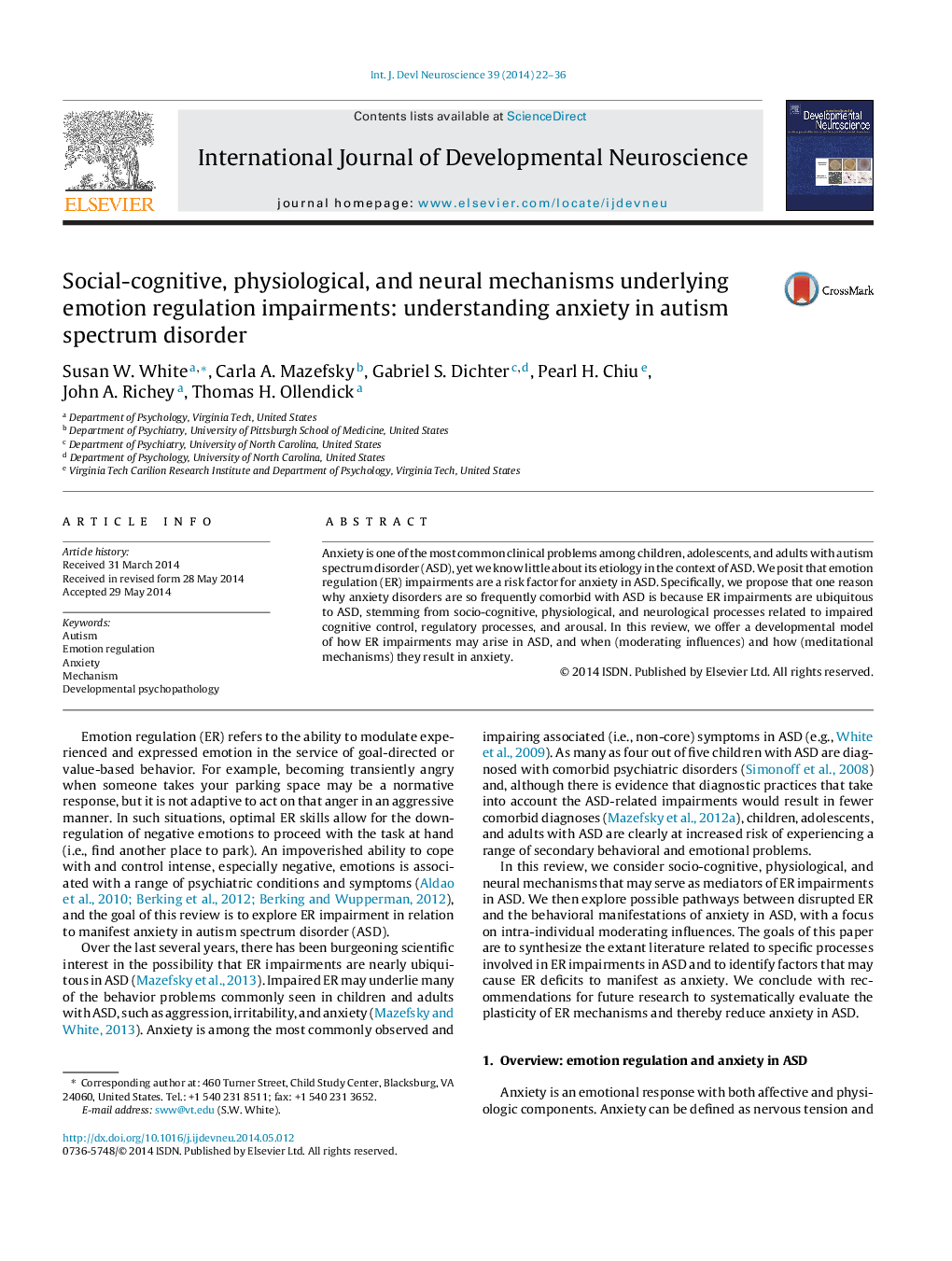| کد مقاله | کد نشریه | سال انتشار | مقاله انگلیسی | نسخه تمام متن |
|---|---|---|---|---|
| 2785892 | 1568392 | 2014 | 15 صفحه PDF | دانلود رایگان |
• Anxiety in autism spectrum disorder (ASD) may stem from impaired emotion regulation.
• Emotion regulation difficulties in ASD are multiply determined.
• Targeting emotion regulation in ASD may be parsimonious and clinically effective.
Anxiety is one of the most common clinical problems among children, adolescents, and adults with autism spectrum disorder (ASD), yet we know little about its etiology in the context of ASD. We posit that emotion regulation (ER) impairments are a risk factor for anxiety in ASD. Specifically, we propose that one reason why anxiety disorders are so frequently comorbid with ASD is because ER impairments are ubiquitous to ASD, stemming from socio-cognitive, physiological, and neurological processes related to impaired cognitive control, regulatory processes, and arousal. In this review, we offer a developmental model of how ER impairments may arise in ASD, and when (moderating influences) and how (meditational mechanisms) they result in anxiety.
Journal: International Journal of Developmental Neuroscience - Volume 39, December 2014, Pages 22–36
